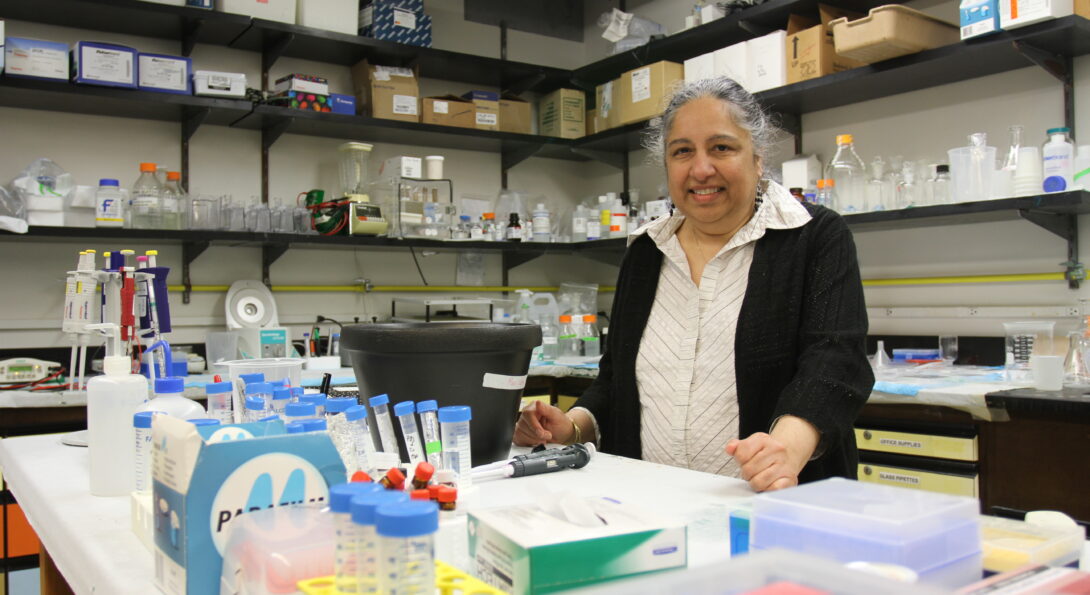Researchers gain insight into how smoking contributes to lung cancer

A study published in the journal Cells on cigarette smoke’s effects on the ends of chromosomes, called telomeres, is from research conducted in the laboratory of Neelu Puri, PhD, an associate professor in the UICOMR Department of Biomedical Sciences and a member of the University of Illinois Cancer Center.
The article entitled The Effects of Smoking on Telomere Length, Induction of Oncogenic Stress, and Chronic Inflammatory Responses Leading to Aging provides insights into how smoking is related to the shortening of telomeres, which may lead to cancer and inflammatory diseases in smokers.
Telomeres tend to shorten with age, but the researchers found that telomeres were also shorter in smokers compared to non-smokers. Dr. Puri’s lab further investigated the effect of cigarette smoke extract on telomere-associated genes (TRF2 and POT1) in cancer cells/lung fibroblasts and found that they were lower than non-smokers. They also found that genes involved in the development of lung cancer in smokers (hTERT) and inflammation-associated genes (ISG15) were higher in smokers compared to non-smokers. Similar changes in the expression of these genes were observed in smokers' blood and buccal swab samples compared to non-smokers.
Another protein that induces inflammation (IFN-γ), which is also associated with ISG15, was higher in smokers compared to non-smokers. Dr.Puri’s lab also observed an increase in levels of proteins involved with cancer formation (hTERT) and inflammation (ISG15) by staining lung tissue from smokers compared to non-smokers.
These studies conclude that shorter telomeres in smokers contribute to higher risk of cancer and inflammation-associated diseases.
The authors of the paper are Shreya Deb, who worked in Dr. Puri’s lab as an MBT student and is now a UIC PhD student; former medical students Joseph Berei, Edward Miliavski, Taylor J. Broder and Thomas A. Akurugo; current medical student Cody Lund; research associate Muhammad J. Khan; Sara E. Fleming, MD, a UW Health pathologist and clinical assistant professor in the Department of Health Sciences Education; Robert Hillwig, MD, clinical assistant professor in the Department of Health Sciences Education; and Joseph Ross, associate professor of clinical family medicine in the Department of Family and Community Medicine.
This research was funded by a Bridge Grant from the University of Illinois College of Medicine Rockford.